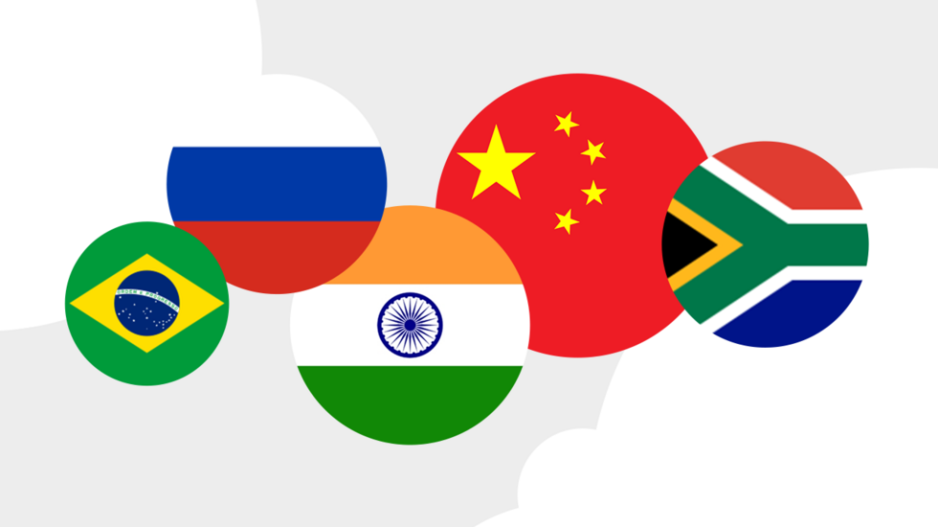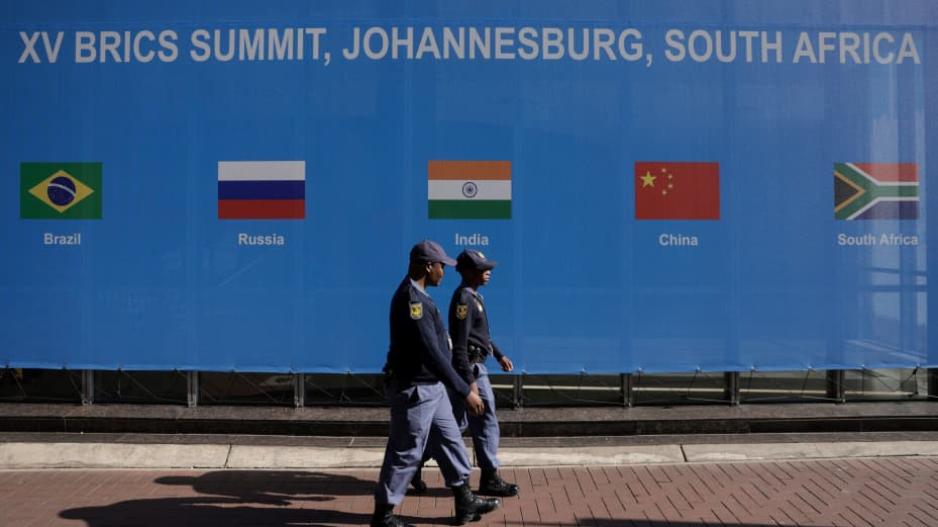BRICS Expansion: Leaders to Discuss Membership Increase Amid Global Interest
This week, as the leaders of the BRICS nations — Brazil, Russia, India, China, and South Africa — gather in South Africa, their primary agenda includes discussing a potential increase in membership. Currently, BRICS countries account for a quarter of the world's wealth, and their combined economic might represents a quarter of the global economy.
The group's prominence on the world stage is evident in the rising interest among nations to be a part of it. South African officials have reported that over 40 countries, mainly from the "Global South" or nations outside of traditional Western influence, have expressed interest in joining the BRICS alliance. These nations vary widely, from Argentina and Vietnam to Kazakhstan and Saudi Arabia, each bringing unique political, economic, and cultural facets.
Yet, there's a challenge. The BRICS members themselves are yet to reach a consensus on membership expansion. While they seek an alternative to the West-dominated international order, their opinions diverge when it comes to welcoming new nations into their fold.
Another point of interest is China's ambition for the group. Analysts suggest that China, as the powerhouse of BRICS, is keen on molding the group to parallel the G7's stature. Earlier in July, China's Foreign Minister, Wang Yi, championed the significance of BRICS, stating it as a paramount platform for cooperation among emerging markets. He emphasized China's readiness to collaborate with co-members to amplify and bolster the bloc's influence.
Beijing's vision for BRICS extends beyond economic collaboration. The group offers China a unique opportunity to position itself as a leader for developing nations and the broader "Global South". Brian Hart of the Center for Strategic and International Studies remarked, "For Beijing, BRICS is not just an economic group but a platform to project its global influence."
As discussions unfold over the next three days, approximately 50 world leaders are expected to engage in the summit. The outcome will undoubtedly shape the direction of this influential group and its role in global geopolitics.

As the BRICS coalition considers adding new members, existing rifts and rivalries are taking center stage. While Russia and South Africa are pushing for new admissions, India remains apprehensive, primarily due to its existing economic and geopolitical contention with China.
India's capital, New Delhi, has expressed concerns about the BRICS potentially becoming a platform for Beijing to push its global ambitions. Analysts predict that such diverging interests among member countries might shape the consortium's future membership decisions. Hung Tran, a non-resident senior fellow at the Atlantic Council, recently pointed out, "The ongoing disagreement between China and India over enlarging the coalition will dictate the organization's future and influence aspiring nations' prospects."
A significant aspect to consider is the balancing act countries like South Africa, India, and Brazil must perform. These nations aim to strengthen ties with China and Russia, yet they must also ensure they don't jeopardize relations with crucial trading partners such as the United States.
Cobus van Staden of the South African Institute of International Affairs (SAIIA) emphasized the gravity of new inclusions. He noted, "Introducing even less controversial members could reshape the BRICS' image and sway. For instance, if Saudi Arabia were to join, it would undeniably introduce an added layer of geopolitical complexity."
In recent times, the BRICS development bank has opened its doors to Bangladesh, the United Arab Emirates, and Egypt. This institution stands as an alternative to global financial giants like the World Bank and the International Monetary Fund. Another nation in the fray for inclusion is Uruguay, which seeks to join the Shanghai-based New Development Bank.
South African Foreign Minister, Naledi Pandor, views these new additions as a broadening of the BRICS alliance. She revealed that the upcoming BRICS summit would discuss a comprehensive proposal on the criteria for new members.
John Stremlau from the University of Witwatersrand in Johannesburg weighed in on the evolving dynamics, stating, "Identifying clear-cut criteria for new admissions is challenging, given BRICS' diverse nature. It remains to be seen if China can exert its influence to steer the group's direction."






